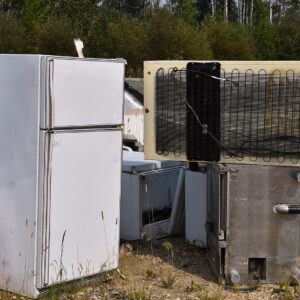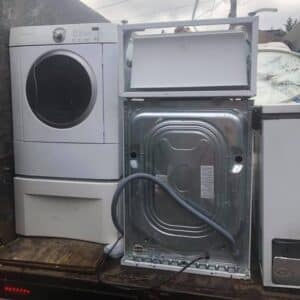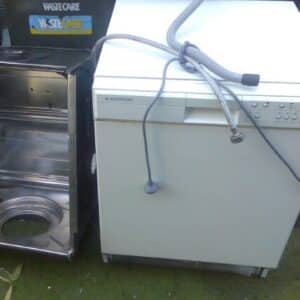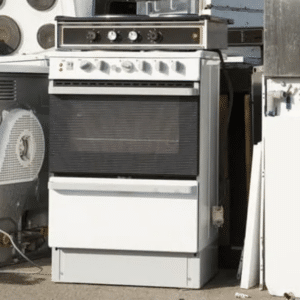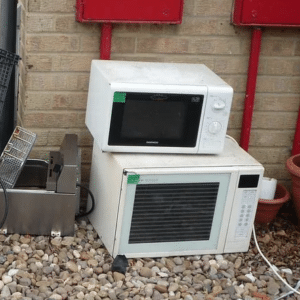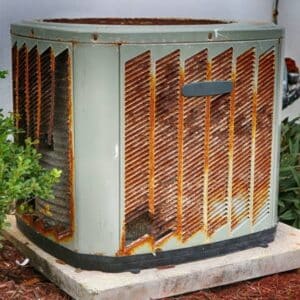How to Dispose of Appliances Responsibly
In today's fast-paced world of technological advancements, the need for proper appliance disposal has never been more critical. Whether you're upgrading your kitchen with a new refrigerator or replacing an old washing machine, the question remains: what do you do with your outdated appliances? We will walk you through the importance of responsible appliance disposal and introduce you to our efficient solutions.
The Environmental Impact of Improper Appliance Disposal
Improper disposal of appliances can have severe consequences for our environment. Many household appliances contain harmful materials such as:
- Refrigerants that contribute to ozone depletion
- Heavy metals like mercury and lead
- Toxic chemicals in circuit boards and insulation
When these appliances end up in landfills, they can leak these hazardous substances into the soil and water, posing risks to both human health and wildlife. Additionally, the sheer volume of discarded appliances contributes significantly to our growing waste management challenges.
Role of Responsible Disposal
Responsible appliance disposal is not just an environmental necessity; it's often a legal requirement. Many states and municipalities have strict regulations governing the disposal of large appliances, also known as "white goods." By choosing the right disposal method, you can:
- Minimize environmental impact
- Comply with local laws and regulations
- Potentially recover valuable materials through recycling
- Ensure the safe handling of hazardous components
Bargain Dumpster's Appliance Disposal Solutions
At Bargain Dumpster, we understand the challenges of appliance disposal. That's why we offer convenient and cost-effective solutions to make the process as smooth as possible. Our services include:
- A range of dumpster sizes to accommodate various appliance disposal needs
- Flexible rental periods to suit your project timeline
- Professional delivery and pickup services
- Guidance on proper loading and disposal techniques
Whether you're a homeowner renovating your kitchen, a property manager clearing out old units, or a contractor handling a large-scale appliance removal project, Bargain Dumpster has the right solution.
In the following sections, we'll dive deeper into the specifics of appliance disposal, including preparation steps, recycling options, and how to choose the right dumpster for your needs.
Types of Appliances Covered
Ready to Rent a Dumpster? Give Us a Call
Top Appliance Disposal Options
Rent a Roll Off Dumpster
A roll-off dumpster rental offers a convenient solution for disposing of old appliances and household clutter. This versatile option simplifies the process of clearing out unwanted items:
1. Easy loading: Simply toss your items into the spacious container at your own pace.
2. Flexible timeline: Keep the dumpster on-site for as long as your project requires, allowing you to work without rushing.
3. One-stop disposal: Perfect for kitchen renovations or comprehensive home cleanouts, as you can dispose of various items alongside old appliances.
4. Hassle-free pickup: Once you've finished loading, a quick call is all it takes to have everything hauled away.
5. Efficient space utilization: Consolidate multiple disposal trips into a single container, saving time and effort.
By choosing a roll-off dumpster rental, you're opting for a stress-free, efficient method to declutter and renovate your living space. This approach not only streamlines the disposal process but also provides the flexibility to tackle larger home improvement projects with ease.
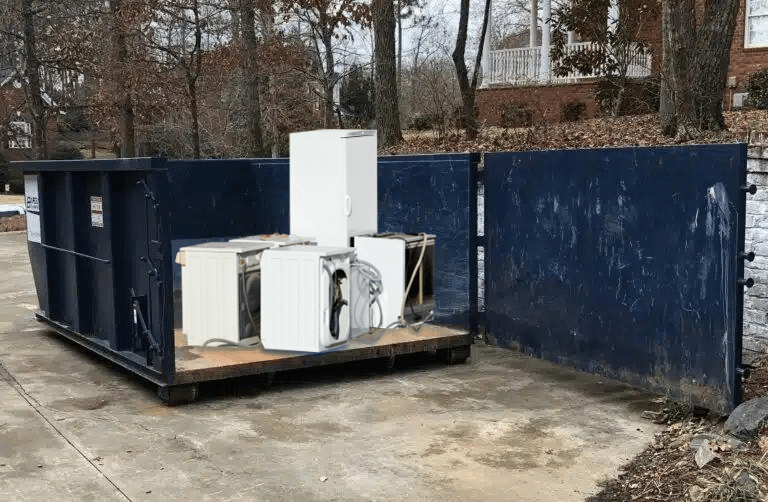

Sell Them
Selling old appliances can be an effective way to recoup some money and clear space in your home. Here's a concise summary of the best methods:
1. Online marketplaces: Utilize platforms like Facebook Marketplace, eBay, OfferUp, and Craigslist to reach a wide audience of potential buyers.
2. Local advertising: Post notices in neighborhood newsletters, host a moving sale, or place a "For Sale" sign on the appliance in your driveway.
3. Used appliance stores: Sell to local dealers who specialize in refurbishing and reselling appliances.
4. Consignment shops: These stores can help you reach buyers while maintaining a good reputation.
5. Scrap metal recycling: If the appliance is non-functional, consider selling it for its metal components.
6. Property management companies: Landlords may be interested in purchasing used appliances for rental units.
7. Donation: Consider donating to organizations like the Salvation Army or Habitat ReStore for a potential tax deduction.
When selling, clean the appliance thoroughly, ensure it's in working condition, take clear photos, and provide accurate details about its make, model, and dimensions. Price your appliance at about 20-40% of its original cost for a fair and attractive offer. By following these steps, you can successfully sell your old appliances and potentially make some extra cash.
Use Local Trash Pickup for Old Appliance Disposal
Local trash pickup can be a convenient way to dispose of old appliances, but it's important to follow proper procedures:
- Check local regulations: Many areas have specific rules for appliance disposal.
- Prepare the appliance: Remove all contents, disconnect utilities, and secure doors for safety.
- Schedule pickup: Contact your waste management department to arrange collection and inquire about any fees.
- Consider environmental impact: Some appliances require special handling due to harmful materials.
- Explore alternatives: Look into retailer take-back programs, recycling centers, or donation options if local pickup isn't available.
Remember to place the appliance at the curb on the designated day, following local guidelines. By adhering to these steps, you can ensure safe and responsible disposal of your old appliances through local trash pickup services.
Recycle Old Appliances
Recycling old appliances is an environmentally responsible way to dispose of outdated or non-functional household items. Here's what you need to know:
- Preparation: Unplug the appliance and remove any removable parts. Clean it thoroughly if possible.
- Recycling options:
- Local recycling centers or transfer stations
- Scrap metal dealers
- Retailer take-back programs
- Utility provider recycling initiatives
- Benefits:
- Recovers valuable materials like steel, copper, and aluminum
- Prevents harmful components from entering landfills
- Reduces energy consumption in manufacturing new appliances
- Common recyclable appliances:
- Refrigerators, washing machines, air conditioners
- Small appliances like toasters, blenders, and coffee makers
- Disposal methods to avoid:
- Never place appliances in curbside recycling bins
- Avoid disposing of appliances in regular trash
By recycling your old appliances, you're contributing to resource conservation and reducing environmental impact. Always check local regulations and available programs for the most appropriate recycling method in your area
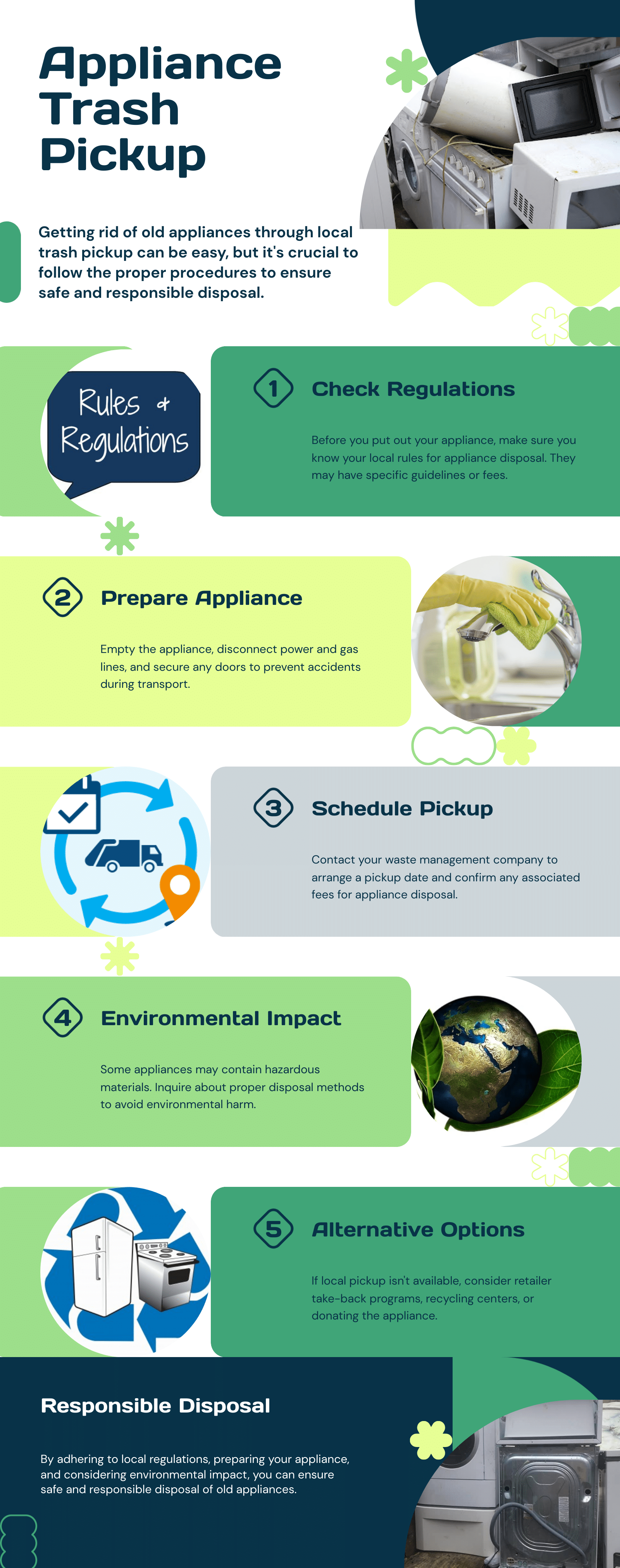
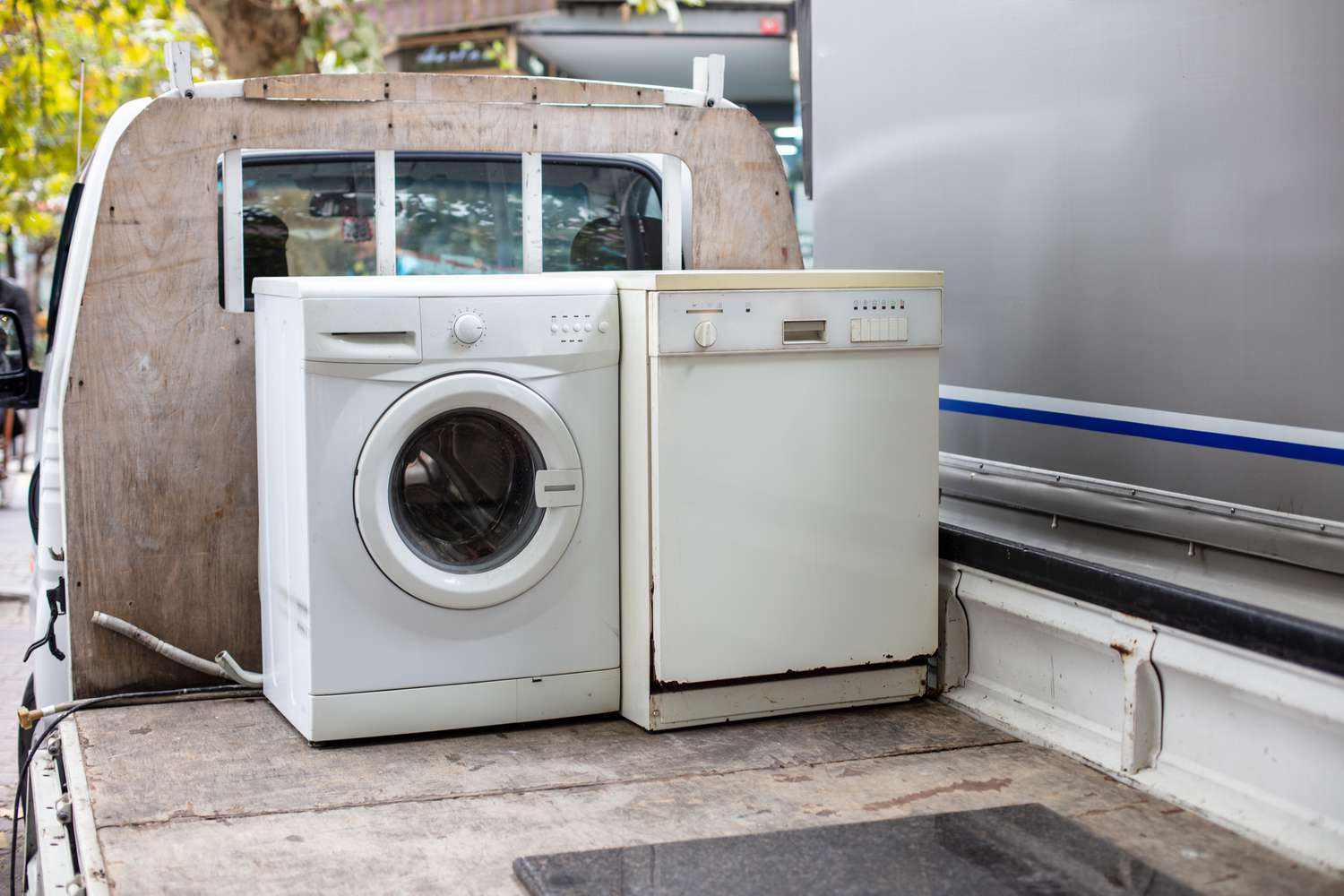
Dispose of Old Appliances Yourself
When getting rid of old appliances on your own, consider these options and tips:
- Preparation:
- Remove all contents and clean thoroughly
- Disconnect from power sources and remove cords
- Secure or remove doors for safety
- DIY Disposal Methods:
- Break down into smaller parts for easier handling
- Separate recyclable materials (metals, plastics)
- Transport to the local recycling center or scrap yard
- Safety Considerations:
- Use proper lifting techniques to avoid injury
- Wear protective gear (gloves, safety glasses)
- Be cautious of sharp edges and heavy components
- Environmental Responsibility:
- Properly dispose of hazardous materials (refrigerants, oils)
- Research local regulations for specific disposal requirements
- Alternative Options:
- Sell functioning appliances online or locally
- Donate to charities or second-hand stores
- Offer to hobbyists or repair enthusiasts
Remember, some appliances require professional handling due to hazardous components. Always prioritize safety and environmental concerns when disposing of appliances yourself.
The best way is to recycle it. Contact local appliance recyclers, scrap metal yards, or your city’s waste management. Some retailers also offer haul-away services when you purchase a new dishwasher. Many cities offer free large appliance pickup. Contact your local waste management department to check for free services. Some charities and recycling centers also provide free pickup for working appliances. Small appliances like toasters or coffee makers can often go in regular trash, but it’s best to check your local guidelines first. Many communities have e-waste recycling programs that accept small appliances, which is a more environmentally friendly option. Freon must be removed before appliance disposal because: Only certified technicians should remove Freon to ensure safety and legal compliance. Based on the search results, here are the key points about costs associated with appliance recycling: 1. Professional junk removal services typically charge $75-$130 for pickup and disposal of a single household appliance. 2. Best Buy offers appliance haul-away services: 3. Some retailers like Best Buy recycle certain electronics and appliances for free, while others charge a fee (e.g. $29.99 per item for some products). 4. Local waste management facilities or landfills may charge recycling fees. For example, Metro Park East Landfill and Metro Park West Landfill charge a $15 recycling fee for appliance disposal. 5. Curbside pickup services may require purchasing stickers or tags. One example mentioned needing 7 large item stickers for appliance pickup. 6. Some utility companies or local programs may offer free or subsidized appliance recycling, especially for refrigerators, freezers, and cooling equipment. 7. Costs can vary widely depending on location, type of appliance, and disposal method. According to one source, appliance removal prices can range from $80 to $625. 8. Additional costs may be incurred for disconnecting appliances safely, such as hiring an electrician ($50-$100/hour) or plumber ($60-$140/hour). The most cost-effective option depends on your specific situation and the local services. It’s worth comparing options with local waste management, retailers, and recycling programs.
– $59.99 to haul away an old appliance when delivering a replacement product.
– $199.99 for standalone haul-away of up to 2 large appliances and unlimited smaller items, without a purchase.
Have any additional Questions?
Call us today and we would be happy to walk you through the rental process.

